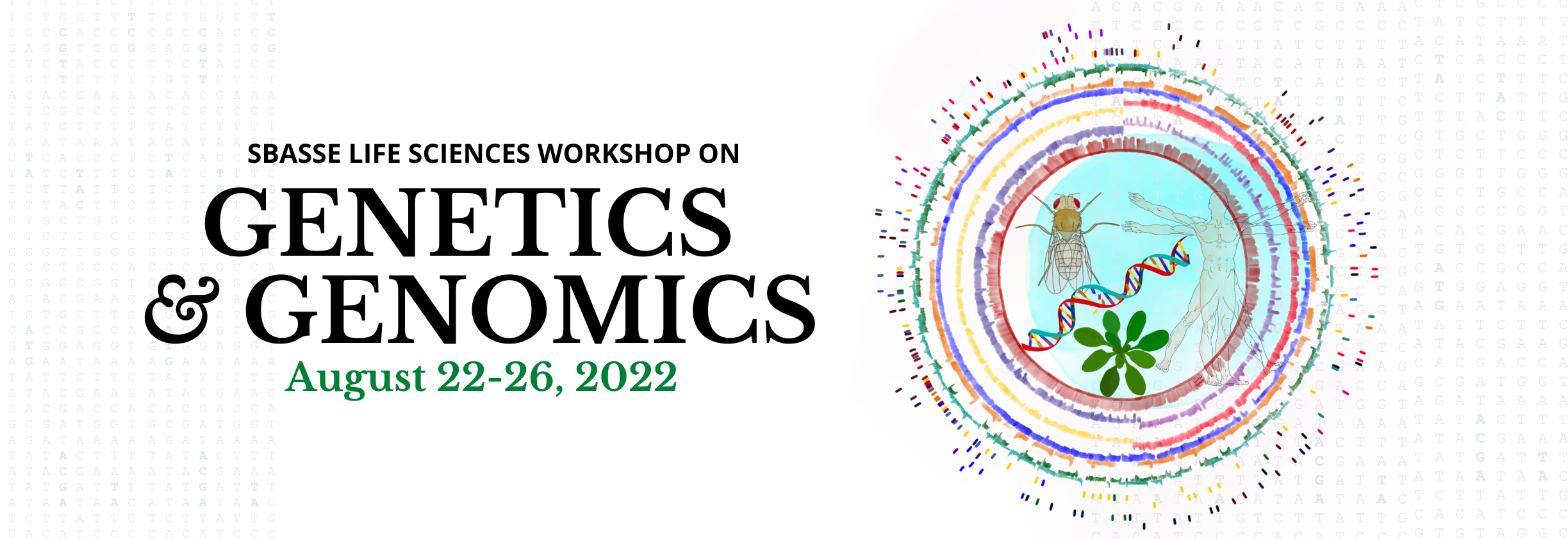Genetics and Genomics
SBASSE Life Sciences Workshop 2022

Event Date: August 22-26, 2022
Please register at: Click here
Get your Fee Voucher: https://register.lums.edu.pk/
Please follow the given guidelines: PDF
Detailed Program: Click here
Event Poster: Download
Registration Deadline: July 27, 2022
Genetics and genomics are rapidly evolving fields that use technological innovations to understand biological processes in a unique way. This workshop aims to foster scientific exchange and synergies across genetics and genomics by bringing together leading and emerging scientists to discuss the classical concepts and the most recent advances in these areas. During this workshop, participants will learn how to employ forward and reverse genetic approaches to design genetic screens for discovering new genes and understanding cellular function. Using model systems, such as Arabidopsis and Drosophila, the participants will learn how newly discovered genes are characterized using various functional genomics approaches. Moreover, the participants will be introduced to various gene-editing approaches, in particular, CRISPR-Cas methodology, to study the function of various genes, focusing on the human genome. An important highlight of the workshop will be hands-on experience in (i) imaging using confocal microscopy, (ii) analysis of gene expression using real-time PCR, (iii) genetic studies in Arabidopsis & Drosophila, and finally (iv) a workflow of CRISPR-Cas9 based gene editing.
Introduction to our speakers:
Khurram Bashir (PhD)
Plant Biotechnology/Molecular Biology
Dr Khurram's research focuses on plant’s response to different abiotic stresses, such as mineral deficiency and drought stress. It involves identifying and characterizing the molecular function of individual genes using combinations of biotechnological tools and employing several approaches such as the development and characterization of transgenic crops which are tolerant or sensitive to these stresses. It also includes utilizing different plant metabolites to mitigate abiotic stress responses in plants.
Muhammad Shoaib (PhD)
Epigenome and Genome Integrity
Dr Shoaib’s research focuses on understanding the role of chromatin-centered molecular pathways that govern key cellular processes including DNA replication, transcription, and DNA damage response. Perturbation of these pathways is linked to the onset and progression of different diseases, in particular, cancer. He employs a highly interdisciplinary approach and relies on both conventional molecular & cellular biology techniques and high-throughput genomics & proteomics technologies such as ChIPseq, RNAseq, Mass Spec, etc., and subsequent bioinformatics analysis. Using Systems Biology approaches, he is keen on integrating the high throughput biological data to build next-generation multiscale in-silico networks of Epigenetic and DNA damage response factors to develop next-generation precision cancer therapies.
Muhammad Tariq (PhD)
Epigenetics
Dr Tariq is interested in understanding how cell fates are established and how they are maintained during our development. His laboratory works on Polycomb (PcG) and Trithorax group (TrxG) genes in fruit flies which are involved in maintaining epigenetic states of gene expression. Defects in gene regulation by these groups of proteins are linked to different types of cancers. Establishing the molecular link between PcG/TrxG and cell signalling pathways is a major long-term goal of the Tariq lab at LUMS.
Zaigham Shahzad (PhD)
Plant genetics and epigenetics
Dr. Shahzad is interested in understanding how variation in plant genomes and epigenomes translate to phenotypic variation. This involves developing high-throughput phenotyping, next generation sequencing, and genetic and epigenetic association mapping methods. The long-term aim of the lab is to employ genome and epigenome editing approaches to improve crop production in normal and stressed environments.
Contacts:
Ms. Iqra Manzoor Qadir | iqra.manzoor@lums.edu.pk

